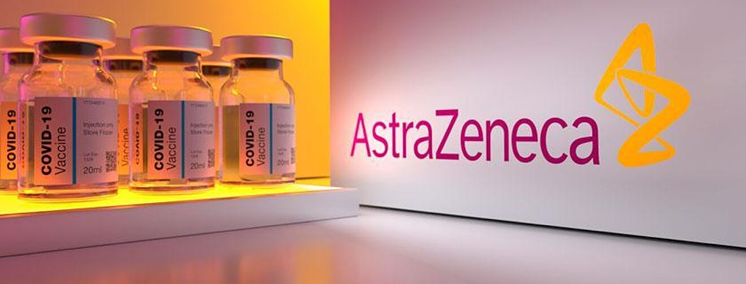AstraZeneca (AZ) has announced that new real-world data from Canada shows its COVID-19 vaccine – Vaxzevria – was found to be highly effective after one dose against severe disease or hospitalisation caused by the Beta and Delta variants.
The pre-print results, from the Canadian Immunization Research Network (CIRN) with support from Public Health Agency of Canada and the Canadian Institutes of Health, showed one dose of Vaxzevria was 82% effective against hospitalisation or death caused by the Beta and Gamma COVID-19 variants.
On top of that, AZ’s jab showed high efficacy against the Delta and Alpha variants, showing an 87% reduction and 90% reduction of hospitalisations or deaths respectively.
One dose of Vaxzevria had lower efficacy against milder symptomatic disease than against severe disease, although AZ added that the indicated two dose schedule of the vaccine is known to enhance efficacy in this disease setting.
The vaccine’s effectiveness against any symptomatic disease was 50% for the Beta or Gamma variants, and 70% and 72% against the Delta and Alpha variants respectively.
The analysis included 69,533 individuals who tested positive for COVID-19 from December 2020 to May 2021 in Ontario, Canada, with 28,705 testing positive for non-variants of concern and 40,828 testing positive for a variant of concern.
“With different variants threatening to disrupt our route out of the pandemic, this real-world evidence shows that Vaxzevria, along with other vaccines used in Canada, provides a high level of protection against the most serious forms of the disease, even after just one shot,” Said Mene Pangalos, executive vice president, BioPharmaceuticals R&D at AZ.
“It is essential that we continue to protect as many people as possible in all corners of the world in order to get ahead of this deadly virus,” he added.
The floating traffic jams off ports. The multiplying costs of moving freight. The resulting shortages of goods. All of this had seemed like an unpleasant memory confined to the COVID-19 pandemic. But no such luck!
An ocean container capacity crunch has hit global trade just as peak shipping season starts, with freight spot rates up some 30% over the past few weeks and heading higher.
The first joint Europe-wide assessment of the drivers and impact of chemical pollution by the European Environment Agency (EEA) and the European Chemicals Agency (ECHA) has concluded that, despite progress in some areas, “more work is still needed to reduce the impact of harmful substances on human health and the environment”. Key findings include:
The severe drought which has forced the Panama Canal, one of the world’s busiest trade passages, to limit daily crossings could impact global supply chains during a period of high demand.
In the early hours of March 26, the Singapore-flagged ship Dali, loaded with 5,000 containers, slammed into Baltimore’s Francis Scott Key Bridge, causing the 1.6-mile (2.5-kilometer) bridge to collapse in a matter of seconds. The Dali was departing for Colombo when the disaster struck. Initial fears were confirmed that half a dozen people lost their lives in the accident.
The pharmaceutical and biotechnology industries constantly seek innovative methods to enhance product stability, solubility, bioavailability and ease of use. Within this realm, CDMOs [Contract Development & Manufacturing Organizations] serve as invaluable partners in the development and production of high-quality drug products.
Chinese New Year 2024 is upon us, disrupting logistics from Asia starting Feb 10th. This event is expected to impact global shipping until Feb 21. Freight rates from Asia has skyrocketed with rates to the US surging by 3.5X and Europe by 6X.
Amid ongoing Red Sea diversions by shipping giants like Maersk, CMA, logistics managers are globally confronting a dual challenge of escalating ocean and air freight prices alongside cargo disruptions due to
Why will CM be the next generation on quality?
